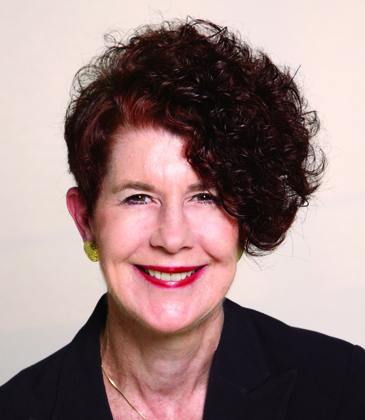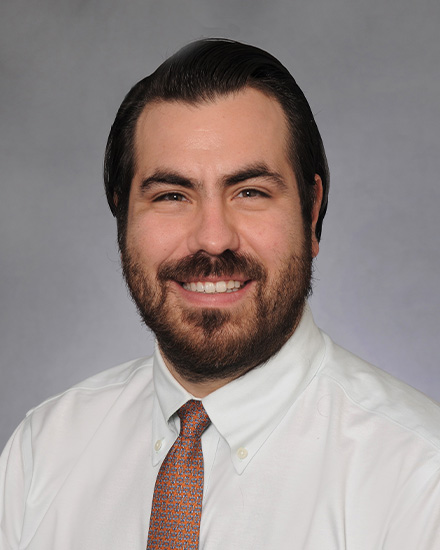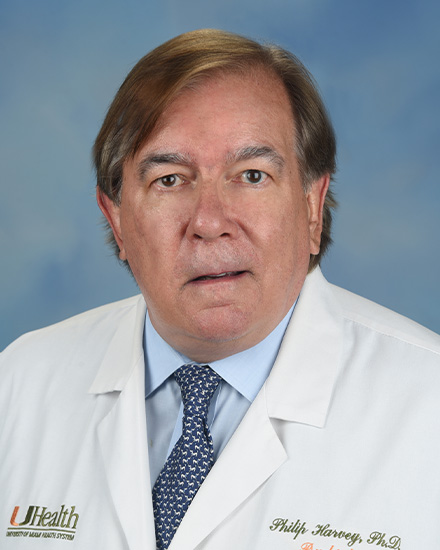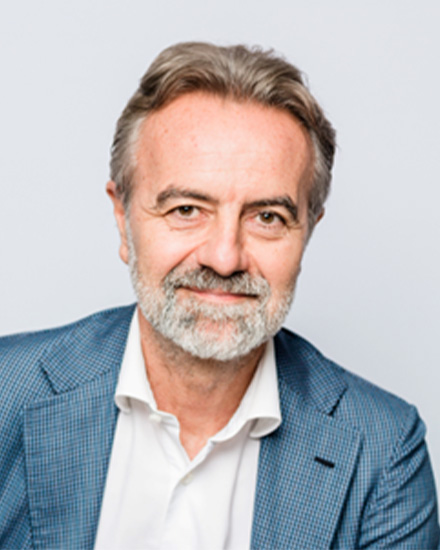ESSENTIAL PSYCHOPHARMACOLOGY, 2024
Practice and Update
Sponsored by the University of Miami Miller School of Medicine Department of Psychiatry and Behavioral Sciences.
This course is offered in-person only.
Explore the complex interactions between neurobiology and clinical pharmacology with this comprehensive seminar. Beginning with a fundamental understanding of neurotransmission in the central nervous system, we expand our exploration to encompass the principles that – still today – bridge the art and science of clinical pharmacology. This course illuminates the challenges of major depressive disorder and anxiety spectrum disorders. It will also magnify the enduring efficacy of mood stabilizers such as lithium salts, and delves deep into the complex landscape of schizophrenia, bipolar disorders, and their evolving treatments. We place particular emphasis on early intervention and prevention in psychosis, addressing coexisting challenges of substance abuse, and provide a detailed examination of child and adolescent psychopharmacology. By interweaving cutting-edge research with practical clinical insights, this seminar aims to bolster your therapeutic decision-making, optimizing patient outcomes in varied psychiatric disturbances.
Upon completion of this activity, participants will be able to:
- Understand the intricate mechanisms of neurotransmitter release, reception, and modulation in the CNS, providing a foundational grasp of clinical psychopharmacology.
- Appreciate the balance between the art of patient-centered care and the empirical science in the practice of clinical pharmacology.
- Distinguish the nuances of bipolar depression from its unipolar counterpart and tailor treatment approaches effectively such as the underappreciated potential of lithium salts in mood stabilization.
- Evaluate the new generation of antipsychotic drugs and apply tailored strategies for phases such as the prodromal period, the first episode, and relapse in schizophrenia.
- Prioritize early interventions in psychosis, understand treatment avenues for patients with coexisting substance abuse, and actively engage in discussions to refine clinical approaches.
- Master the diagnosis of substance use disorders, understanding their signs, applying diagnostic criteria, and assessing severity.
- Explore evidence-based treatment methods for addiction and understand the principles of harm reduction and relapse prevention.
- Grasp the unique considerations in pediatric psychopharmacology, from diagnosis to pharmacological treatments for disorders such as ADHD, mood, anxiety, and psychotic disorders.
- Implement tailored treatment algorithms in pediatric patients, understanding the pharmacokinetic differences between adults and children.
- Comprehend the mechanisms for the treatment of depression and anxiety disorders and effectively utilize the appropriate psychopharmacologic agents for the treatment of these disorders.
| Monday, February 26, 2024 |
|
| 8:30 am – 9:00 am |
Registration |
| 9:00 a.m. – 10:15 a.m. |
Neurotransmissions in the Central Nervous System: The Basics of Essential Clinical Psychopharmacology” with Luca Pani, M.D. Neurotransmissions within the Central Nervous System (CNS) form the basis for a plethora of neurobiological processes, significantly influencing behavior, mood, and cognition. This lecture offers an in-depth exploration into the intricate mechanisms of neurotransmitter release, reception, and modulation in the CNS, laying the groundwork for understanding clinical psychopharmacology’s foundational principles. Attendees will be introduced to the major neurotransmitter systems, their interplay, and their significance in psychiatric disorders. Key learning points encompass the physiological basis of drug action, the relationship between neurotransmitter imbalances and psychiatric conditions, and the importance of precision in pharmacological interventions. By bridging the gap between neurobiology and clinical application, this lecture equips clinicians with essential knowledge to make informed therapeutic decisions in their practice. |
| 10:15 a.m. – 10:30 a.m. |
Coffee Break |
| 10:30 a.m. – 12:15 p.m. |
The Foundations of the Art and Science of Clinical Pharmacology: A Tribute to Sir William Osler, M.D. with Luca Pani, M.D. In bridging the realms of art and science, clinical pharmacology emerges as a dynamic discipline that owes much of its foundational philosophy to the teachings of Sir William Osler, MD. This lecture delves deep into the principles laid down by Osler, emphasizing the harmony between scientific rigor and the art of patient-centered care. Attendees will traverse the evolution of clinical pharmacology, witnessing Osler’s profound influence on integrating bedside observations with laboratory insights. Key learning objectives include understanding the holistic approach to patient treatment, recognizing the significance of continuous learning in medical practice, and appreciating the delicate balance between empirical science and humanistic art in healthcare. By honoring Osler’s legacy, this lecture underscores the timeless relevance of his teachings in the ever-evolving landscape of clinical pharmacology. |
| Tuesday, February 27, 2024 |
|
| 9:00 a.m. – 10:15 a.m. |
“The Hidden Nature of Bipolar Depression and its Implication for a Successful Treatment” with Luca Pani, M.D. Bipolar depression, often overshadowed by its manic counterpart, presents unique challenges in diagnosis and treatment. This lecture delves into the nuanced and frequently undetected symptoms of bipolar depression, emphasizing the need for accurate identification to optimize therapeutic strategies. Attendees will gain insights into the complexities of bipolar depression, differentiating it from unipolar depression and understanding its cyclical nature. Key learning points include recognizing subtle diagnostic indicators, the role of individualized treatment plans, and the importance of ongoing patient education to prevent mismanagement. By understanding the hidden intricacies of bipolar depression, clinicians can better tailor treatment approaches, improving both short-term outcomes and long-term prognosis. |
| 10:15 a.m. – 10:30 a.m. |
Coffee Break |
| 10:30 a.m. – 12:15 p.m. |
“Lithium Salts: The Best and Yet Less Known Human Mood Stabilizers” with Luca Pani, M.D. The enduring efficacy of lithium salts in mood stabilization stands as a testament to their therapeutic significance in psychiatric practice. Despite being one of the earliest identified treatments for bipolar disorder, comprehensive understanding of its mechanisms and full therapeutic potential remains relatively underappreciated. This lecture seeks to illuminate the multifaceted nature of lithium salts, from their molecular mechanisms of action to their clinical applications. Attendees will gain insights into the history of lithium’s discovery, its nuanced effects on neuronal health and plasticity, and its preventive role in mood episodes. Key learning objectives encompass understanding lithium’s unique neuroprotective properties, recognizing its therapeutic advantages and limitations, and appreciating its underutilized potential in modern psychopharmacology. By demystifying lithium salts, this lecture aims to fortify clinicians’ knowledge and confidence in harnessing their benefits for mood stabilization and building a therapeutic alliance with the patients who need it most. |
| Wednesday, February 28, 2024 |
|
| 9:00 a.m. – 10:15 a.m. |
“Current Advances in Schizophrenia: From Biological Substrates to Targeted Treatment Development“ with Philip Harvey, Ph.D. The complex landscape of schizophrenia, with intricate neurobiological underpinnings and mechanisms, has witnessed significant scientific advancements, both in understanding and treatment strategies. This lecture addresses potential neurobiological elements of schizophrenia, elucidating the cellular and molecular factors that adversely affect the critical cortical circuits that contribute to symptomatology. Treatment evolutions through the development of the new generation of antipsychotic drugs are an example of evidence-based progress, which also includes the enhanced precision of agents such as clozapine and emerging experimental drugs. However, these developments have still left us short of treating critical issues in schizophrenia, including negative symptoms cognitive impairment, and everyday disabilities. This comprehensive review intertwines the latest research findings with clinical implications, aiming to provide attendees with a refined understanding of schizophrenia’s biology and upcoming state-of-the-art treatment developments across the lifespan including prodromal periods and the very early course of illness where therapeutic interventions have maximal impact. The newest developments in genomics of both schizophrenia and its features, such as negative symptoms and cognitive impairments, will also be a focus. |
| 10:15 a.m. – 10:30 a.m. |
Coffee Break |
| 10:30 a.m. – 12:15 p.m. |
“Pragmatics of Contemporary Interventions in Schizophrenia“ with Philip Harvey, Ph.D. This presentation will address current clinical approaches to the unmet needs in schizophrenia, including early intervention and possible prevention, differentiation of treatment nonadherence and treatment resistance, and treatment of cognitive deficits and negative symptoms. Also, to be considered will be combination therapies with psychosocial interventions. Drugs in development will be examined, starting with those closest to approval and those whose approval would lead to a great leap forward in terms of the remaining unmet needs in schizophrenia. |
| Thursday, February 29, 2024 |
|
| 9:00 a.m. – 10:15 a.m. |
“Mastery in Diagnosis: Recognizing and Evaluating Substance Use Disorders” with Dhruti Patel, M.D. and David Martinez Garza, M.D. Substance use disorders (SUDs) are a multifaceted clinical challenge, with vast implications on personal, social, and public health spheres. This lecture offers a comprehensive investigation of the intricate tapestry of SUDs, encapsulating the myriad signs that often remain under the clinical radar. Attendees will be guided through nuances of diagnostic criteria, enriched by real-world case studies that depict the breadth and depth of SUD presentations. The session further emphasizes the criticality of severity assessment, elucidating the varying trajectories and potential outcomes associated with each severity tier. Drawing upon a synthesis of evidence-based practices and clinical expertise, this lecture aims to hone the diagnostic acumen of practitioners, enabling them to deliver comprehensive and tailored interventions for individuals with SUDs. |
| 10:15 a.m. – 10:30 a.m. |
Coffee Break |
| 10:30 a.m. – 12:15 p.m. |
“Navigating the Landscape of Addiction Treatment: Evidence-Based Interventions and Sustained Recovery” with Dhruti Patel, M.D. and David Martinez Garza, M.D The complexities of addiction demand multifaceted treatment approaches grounded in evidence-based methodologies. This lecture explores the cornerstone methods of addiction treatment, shedding light on the interplay between pharmacotherapy and psychotherapy. Participants will gain a comprehensive understanding of current treatment modalities, underscored by their empirical underpinnings. As the journey of addiction recovery is punctuated by challenges and setbacks, the latter part of the session pivots towards the imperatives of harm reduction and relapse prevention. Participants will be introduced to a suite of strategies that not only prioritize immediate safety but also fortify long-term recovery. Through a blend of theoretical knowledge and practical insights, this lecture seeks to empower practitioners to navigate the continuum of addiction care with confidence and competence. |
| Friday, March 1, 2024 |
|
| 9:00 a.m. – 10:15 a.m. |
“Child and Adolescent Psychopharmacology: Update on Diagnosis and Treatment” with Barbara Coffey, M.D., M.S Child and adolescent psychiatric disorders, while sharing some commonalities with adult disorders, have distinct nuances that necessitate specialized knowledge. This lecture offers an update into pharmacological treatments tailored to the pediatric population. We’ll explore a range of disorders, from the more prevalent such as ADHD and anxiety disorders, to the less common yet equally impactful conditions like tic and psychotic disorders. By juxtaposing clinical symptomatology with effective therapeutic interventions, participants will be equipped to make informed decisions in the management of these disorders. Emphasis will be placed on understanding the unique physiological and psychological considerations when treating younger patients, ensuring their well-being and optimal developmental trajectory. As we navigate the intricacies of pediatric psychopharmacology, this session will integrate evidence-based treatments with real-world clinical applications. |
| 10:15 a.m. – 10:30 a.m. |
Coffee Break |
| 10:30 a.m. – 12:15 p.m. |
“Pediatric Psychopharmacology: Dosing, Management, and Management of Adverse Effects” with Barbara Coffey, M.D., M.S Navigating the landscape of pharmacological treatment in pediatric populations requires both a foundational understanding of drug mechanisms and a keen awareness of the unique physiological characteristics of children. This lecture explores critical differences between adult and pediatric pharmacokinetics, highlighting the metabolic distinctions that underpin dosing decisions. By examining treatment algorithms, attendees will gain clarity on therapeutic approaches tailored to the pediatric population. Central to our discourse is the effective management of adverse effects, ensuring the safety and well-being of younger patients. Beyond theoretical considerations, we will engage in a pragmatic exploration of how to incorporate this knowledge into everyday clinical practice. The session will conclude with a Q & A segment, allowing for a dynamic exchange of insights and addressing any pressing queries attendees might have. |
| 12:15 p.m. |
Course Adjourns |
SEMINAR FORMAT
Meets Monday-Friday: 9:00 a.m.- 12:15 p.m.
Please note coffee is available during registration and a continental breakfast will be served at 10:15 am daily.
SPECIAL REQUESTS
If special arrangements are required for an individual with a disability to attend this conference, contact Kim Miele at psychcme@med.miami.edu at least 15 days prior to the conference.
TUITION
Physician, Nurse Practitioner, and Other Health Professional fees:
Registration fee is $1,095.
Residents, Fellows in Training, and Full-time Student fees are $695.
The fee for taking a second week is $750—and the processing fee (non-refundable) is $10. Registration by credit card (Visa, MasterCard, or American Express) or check can be made through the University of Miami secure registration system.
REFUND POLICY
Refunds, less an administrative fee of $100, will be issued for all cancellations received two weeks prior to the start of the course. Refund requests must be received by email. No refund will be issued should cancellation occur less than two weeks prior. “No shows” are subject to the full course fee, and no refunds will be issued once the conference has started.
ONLINE INFORMATION
To register or view activity information online, visit: https://bit.ly/44OrkG2
ELECTRONIC SYLLABUS
We provide all attendees with completely free access to all slide presentations in digital PDF format prior to the conference. This is an environmentally friendly alternative and helps keep costs lower for all attendees. The e-syllabus will be available for 30 days after the conference. You can purchase a printed copy at the time of online registration for $35 for Dr. Pollak’s course and $55 for all other winter courses.
Please note we will not have hard copies of the syllabus available for purchase at the conference.
WEEK-LONG SEMINARS
Meets Monday-Friday: 9:00 a.m. – 12:15 p.m.
Please note coffee is available during registration, and a continental breakfast will be served at 10:15 a.m. daily.
PHYSICIAN CREDIT
The University of Miami Leonard M. Miller School of Medicine designates these live winter activities for a maximum of 15 AMA PRA Category 1 Credit™. Physicians should claim only the credit commensurate with the extent of their participation in the activity. The Royal College of Physicians and Surgeons of Canada recognizes conferences and workshops held outside of Canada that are developed by a university, academy, hospital, specialty society or college as accredited group learning activities.
Through an agreement between the American Medical Association and the European Union of Medical Specialists, physicians may convert AMA PRA Category 1 Credit™ to an equivalent number of European CME Credits® (ECMECs®). Information on the process of converting AMA PRA Category 1 Credits™ to ECMECs® can be found at: www.eaccme.eu.
PSYCHOLOGISTS
The University of Miami Leonard M. Miller School of Medicine is approved by the American Psychological Association (APA) to sponsor continuing education for psychologists. The University of Miami Leonard M. Miller School of Medicine maintains responsibility for this program and its content. 15.00 CE credits will be awarded to psychologists for attendance at these seminars.
NURSE PRACTITIONERS AND REGISTERED NURSES
These activities have been submitted to ANA Massachusetts for approval to award contact hours. ANA Massachusetts is accredited as an approver of continuing nursing education by the American Nurses Credentialing Center’s Commission on Accreditation. For more information regarding contact hours, please email psychcme@med.miami.edu
- Psychopharmacology: A Master Class, Charles B. Nemeroff, M.D., Ph.D.
- Cognition and the Aging Brain: Elizabeth Crocco, M.D., Rosie Curiel, M.D., Phillip Harvey, Ph.D., and David Loewenstein, Ph.D.
- Essential Psychopharmacology, 2024: Practice and Update Barbara Coffey, M.D., M.S., Philip Harvey, Ph.D., Luca Pani, M.D., and Dhruti Patel, M.D.
Mindfulness and Compassion in Clinical Practice: Enhancing Treatment Effectiveness and Personal Wellbeing, Susan M. Pollak, M.T.S., Ed.D. meets the specifications of the Board of Registration in Nursing (244 CMR)
Social Workers
Application for social work continuing education credit has been submitted. Please contact Kim Miele at psychcme@med.miami.edu with any questions.
INQUIRIES
By phone at 941-932-2671, Monday-Friday, 9 A.M. to 4 P.M. (EST), or by email at psychcme@med.miami.edu
DISCLOSURE AND CONFLICT OF INTEREST MITIGATION
The University of Miami Leonard M. Miller School of Medicine has assessed conflict of interest with its faculty, authors, editors, and any individuals who were in a position to control the content of this CME activity. Any identified relevant conflicts of interest have been mitigated.
The University of Miami Leonard M. Miller School of Medicine planners, content reviewers, and editorial staff disclose no relationships with ineligible entities. All the relevant financial relationships for these individuals have been mitigated.
ABMS/ACGME COMPETENCIES
All seminars are designed to meet the following American Board of Medical Specialties (ABMS)/ Accreditation Council for Graduate Medical Educational (ACGME) competencies:
- Patient Care and Procedural Skills
- Medical Knowledge
- Practice-based Learning and Improvement
- Interpersonal and Communication Skills
 |
Barbara Coffey, M.D., M.S., ChairmanProfessor and Chairman of the Department of Psychiatry and Behavioral Sciences at the University of Miami Miller School of Medicine; Chief of the Division of Child and Adolescent Psychiatry; Associate Editor, Journal of Child and Adolescent Psychopharmacology; Author of more than 200 manuscripts in peer-reviewed journals, abstracts, and book chapters. Dr. Coffey serves as the Program Chair for the American Academy of Child and Adolescent Psychiatry and on the Scientific Advisory Board of the Tourette Association of America. |
 |
David Martinez Garza, M.D.David Martinez Garza, M.D. Assistant Professor in Psychiatry in the Department of Psychiatry and Behavioral Sciences at the Miller School of Medicine; Author of over 10 papers in renowned scientific journals, including Frontiers in Psychiatry and the ,Journal on Addictions; he has received numerous awards, including the APA Resident Recognition Award, the AAP Resident Psychiatric Education Award, and the AAAP John Renner Award. |
 |
Philip Harvey, Ph.D.Leonard M. Miller Professor of Psychiatry, Department of Psychiatry and Behavioral Sciences at the University of Miami Miller School of Medicine; VA Senior Health Scientist; Recipient, Lieber Prize for Outstanding Schizophrenia Research, 2023; Recipient of first Schizophrenia International Research Society Clinical Scientist Distinguished Contributions award in 2012, the Alexander Gralnick Schizophrenia Research award from the American Psychiatric Foundation, the Department of Veterans affairs John Blair Barnwell award, and the Stanley Dean Award from the American College of Psychiatrists; Author of over 1,000 scientific papers and 60 book chapters; Editor-in-Chief, Schizophrenia Research: Cognition. |
 |
Luca Pani, M.D.Professor of Clinical Psychiatry and Medical Director for CME at the University of Miami Miller School of Medicine; Recipient of the 2021 National William Gelfand Lecture Award for promoting the highest scientific and educational standards in the practice of Medicine. Additionally, he holds a professorship in Pharmacology and Clinical Pharmacology at the University of Modena and Reggio Emilia, Italy. Dr. Pani has previously served as the Director-General of the Italian Medicines Agency (AIFA) and has been a pivotal member of several significant committees within the European Medicines Agency (EMA). Author of over 200 scientific publications and 26 books, primarily focusing on basic and clinical pharmacology, regulatory science, and health technology assessments. He has shared his knowledge at more than 1,500 Continuing Medical Education (CME) events globally, addressing a diverse spectrum of topics. |
 |
Dhruti Patel, M.D.Assistant Professor of Clinical Psychiatry Department of Psychiatry and Behavioral Sciences Miller School of Medicine; board-certified in Adult Psychiatry and Addiction Psychiatry specialties include working with adults with co-occurring mental illness and substance use disorders; member of the American Academy of Addiction Psychiatry. |
 LOCATION
The Grand Beach Hotel Miami Beach, Florida, is in an amazing location overlooking more than 200 feet of beautiful white sandy tropical beaches on the Atlantic Ocean. Built-in 2009 and completely renovated in 2018, our modern Miami Hotel offers the highest levels of luxury and comfort. Our leisure facilities include two hot tubs, a state-of-the-art gym with unbeatable panoramic sunset views, as well as three different swimming pools, including two beach-level family pools and our top-floor tranquility pool (adults only), offering something for every guest.
LOCATION
The Grand Beach Hotel Miami Beach, Florida, is in an amazing location overlooking more than 200 feet of beautiful white sandy tropical beaches on the Atlantic Ocean. Built-in 2009 and completely renovated in 2018, our modern Miami Hotel offers the highest levels of luxury and comfort. Our leisure facilities include two hot tubs, a state-of-the-art gym with unbeatable panoramic sunset views, as well as three different swimming pools, including two beach-level family pools and our top-floor tranquility pool (adults only), offering something for every guest.



Miami Grand Beach Hotel, 4835 Collins Avenue, Miami Beach, FL 33140 To reserve your hotel room, click: https://bit.ly/3qUSAos Group Code: 2402DPBS Or call 1-305-538-8666 and mention you are with the University of Miami Miller School of Medicine Winter Symposiums. You can also email Oscar Romero at oromero@grandbeachhotel.com INQUIRIES Please email Kim Miele at psychcme@med.miami.edu or call 941.932.2671, 10 a.m.– 4 p.m. (EST) Monday-Friday. THINGS TO DO IN MIAMI
| Everglades Miami Double Decker City Tour Miami Zoo Miami Aquarium Miami Heat Game Miami Dolphins Game Miami Boat Show South Beach Food and Wine Festival |
| PGA National Resort Trump National Doral Miami Normany Shores Golf Club Miami Shores Country Club JW Marriot Miami Turnberry Resort & Spa – Soffer Course Miami Beach Golf Course |
| Flamingo Park Margaret Pace Park Crandon Park Tennis Center Fisher Island Club Morningside Tennis Center |
| Nobu Miami Cecconi’s Miami Ocean Social by Chef Tristan Epps Prime 54 Donna Mare Trattoria Santorini – Best Happy Hour in Town |
| Little Havana Food Tour Perez Art Museum Sailing Adventure Vizcaya Museum and Gardens Frost Science Museum and Aquarium Fairchild Tropical Botanical Garden Bayside Marketplace |
